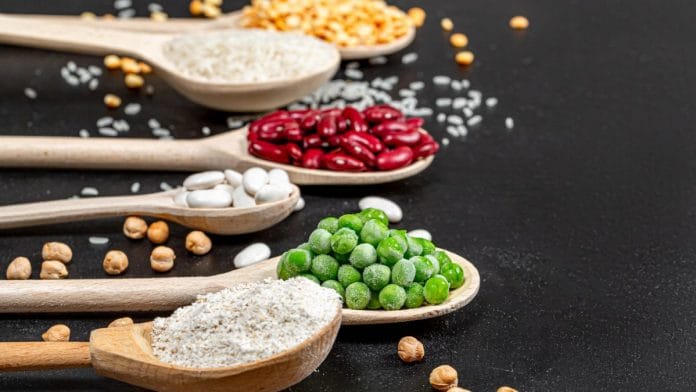It is quite common to hear terms like heart-healthy, gut-healthy or liver-friendly while discussing nutrition, food choices, and dietary management. But how many of us know about gallbladder-friendly diets? It’s a small number, I’m sure. However, most people are familiar with the term gallbladder stone. Gallstones or cholelithiasis are formed when bile, cholesterol or pigment deposit in the gallbladder and hardens. A 2022 study reported, approximately 10-20% of people in the United States carry gallstones and the prevalence is rising. There are different sizes of gallstones, from very small to as big as a golf ball. It is very common for people to develop gallstones, and they are often asymptomatic. 10% of people, however, suffer from multiple symptoms including severe abdominal pain. Gallstones can cause diarrhoea, confusion, loss of appetite, itchy skin, rapid heartbeat, and high temperatures if left untreated.
Lifestyle factors such as being overweight, obesity, diabetes type 2, and an elevated lipid profile have been associated with cholesterol gallstones in numerous studies. One of the major contributing factors to these lifestyle conditions is dietary habits. Gallstone formation is linked to Westernized diets rich in trans fat, refined carbohydrates, and artificial ingredients. The intake of cis unsaturated fat and long-chain fatty acids in adults has been linked to gallstone formation in two prospective cohort studies from 2004 and 2008. Based on a 1999 population-based, case-control study, refined sugar directly contributes to gallstone formation. It was concluded that a poor diet containing fats and sugars coupled with a lack of physical activity has a significant effect on gallstone formation. Likewise, a calorie-rich, low-fibre diet has been associated with gallstone formation due to increased biliary cholesterol secretion and accumulation. High BMI and gallstone risk are closely linked, according to a 2013 study involving 77,000 patients.
Lose weight
To minimize the risk of gallstone formation, it is imperative to maintain a healthy body weight. Multiple complications are associated with obesity. The risk of gallstone formation is reduced with steady weight loss over time. However, rapid weight loss of more than 1.5 kg/week and/or loss of more than 25% of body weight increases the risk of gallstone formation. This was reported by a 2009 study. The National Institute of Diabetes and Diabetes and Kidney Diseases recommends losing 5 to 10% of body weight over 6 months to achieve sustainable weight loss and reduce the chance of regain.
Also read: Here’s what you should eat after a heart attack. Recovery can take months
Dietary guidelines
Research shows few food groups reduce the risk of gallstone formation. Around 46000 men participated in a study that found that monounsaturated and polyunsaturated fatty acids reduced gallstone risk. Women who frequently consumed nuts had a lower risk of gallstone surgery, according to the Nurses’ Health Study. According to the same study, men who ate five or more times a week had a 30% reduced risk of gallstone formation and removal. Nuts are packed with unsaturated fats, fibre, and essential minerals that reduce blood cholesterol and lipid levels. Nonetheless, it is not recommended that you consume more than a handful a day. According to a 12-year study, high carbohydrate intake, high glycemic index, and high glycemic load are also linked to symptomatic gallstones.
A healthy, well-rounded, versatile diet is the cornerstone to keeping your gallbladder healthy. A diet rich in healthy unsaturated fats, fibre, vitamins, minerals, antioxidants, fresh fruits, and vegetables is beneficial to overall health promotion including the prevention of cholesterol gallbladder stones. Sticking to healthy fats is crucial to prevent gallstones. Avoid or reduce junk foods to reduce the consumption of triglycerides and trans fats. Some fantastic sources of healthy unsaturated fats include olive oil, sea fish, walnuts, and seeds. Load your plate with dietary fibres and healthy carbs such as whole grains, whole fruits, vegetables, nuts, legumes, beans, and pulses. Avoid sugary foods and beverages. To start with, stop adding sugar to your tea and coffee. Limit processed foods by adopting Mediterranean-style eating. Include more plant-based proteins such as soy, tofu, beans, and nuts in your daily diet. Try to keep refined sugar, soft drinks, processed foods, red meat, bakery products, fast foods, and deep-fried foods away to avoid aggravating the gallbladder.
Become a smart shopper and purchase healthy, minimally processed whole foods whenever possible. Here’s how your green-lit, guilt-free grocery list should look like – all veggies and fruits, preferably seasonal and local; whole grains such as oats, millets, bulgur, rye, dalia; beans and legumes like chickpea, mixed sprouts, lentils, kidney beans, rajma; lean animal proteins such as skinless chicken, fish, eggs, seafood, tofu; cooking oils such as olive, groundnut, walnut; nuts and seeds.
In a nutshell
Gallbladder stones are painful and can lead to complications if left untreated. Focus on eating a balanced diet composed of nutritious foods and maintaining a healthy body weight can prevent gallstone formation. Moreover, do not ignore the excruciating pain that you are experiencing for days which could be due to gallstone formation and inflammation.
Subhasree Ray is Doctoral Scholar (Ketogenic Diet), certified diabetes educator, and a clinical and public health nutritionist. She tweets @DrSubhasree. Views are personal.
(Edited by Prashant)






